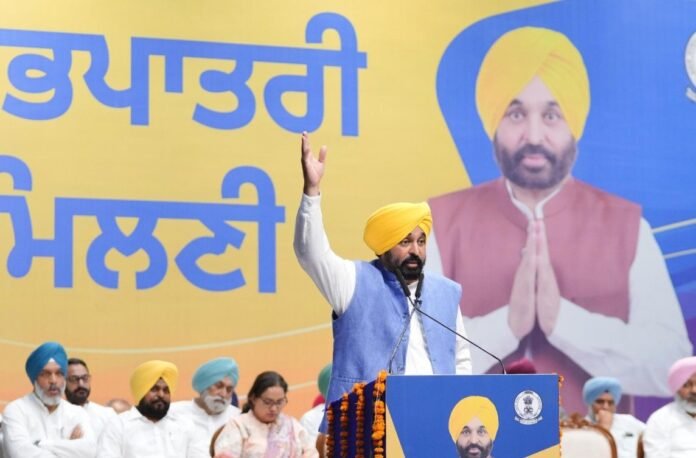Amid growing public sentiment and historical wounds still unhealed, the Punjab government is preparing to introduce a new, more stringent law against the sacrilege of religious scriptures—an issue that has, time and again, stirred public outcry and political turbulence across the state. Sources confirmed that the draft law will be a key agenda item in the upcoming Punjab Cabinet meeting scheduled for this week, with senior government officials working swiftly to finalize its legal contours.
This legislative push comes in response to a long-standing demand from religious leaders and civil society to take firmer action against acts of sacrilege, which are not only deeply offensive to faith communities but have also led to major law and order crises in Punjab. While previous governments attempted similar legislation, many of those efforts either stalled in legal review or were criticized for being vague and legally unenforceable.
Now, the Bhagwant Mann-led Aam Aadmi Party (AAP) government seeks to change that narrative by proposing a law that not only clearly defines sacrilege across religious contexts but also imposes stricter penalties—likely including longer prison terms and faster prosecution timelines.
Officials close to the drafting process say the proposed bill will specifically address incidents involving desecration of the Guru Granth Sahib, the Quran, the Bhagavad Gita, and the Bible—ensuring that the law remains secular in design while firmly responding to all religious grievances. Legal experts within the Punjab government are working to ensure that the bill complies with both the Indian Penal Code and constitutional protections on freedom of expression and religion, to avoid the kind of judicial setbacks faced by earlier laws.
The proposed law comes at a time when Punjab continues to grapple with the legacy of several unsolved or inadequately prosecuted sacrilege cases from 2015 onward. The controversial Bargari case, involving the desecration of Guru Granth Sahib in Faridkot district, and the subsequent police firing on protesters in Behbal Kalan and Kotkapura, remains a potent reminder of the explosive social and political consequences when religious sentiment is undermined.
Political observers suggest that the timing of the new legislation is both significant and strategic. With less than a year and a half left before the 2026 Punjab Assembly elections, AAP is seeking to demonstrate that it is responsive to deep-rooted Panthic concerns—an area traditionally dominated by the Shiromani Akali Dal (SAD). By taking a lead on this issue, AAP appears to be trying to bridge the gap with the Sikh community, particularly in rural Malwa and Majha regions, where sentiments around sacrilege remain highly sensitive.
At the same time, AAP leaders insist that the move is not politically motivated but morally imperative. Speaking to reporters in Chandigarh, a senior minister in the Mann cabinet said, “Sacrilege is not just a crime against faith—it is a crime against peace and social harmony. Our government is committed to protecting the religious sentiments of every community.”
However, critics argue that the proposed legislation must tread carefully between accountability and overreach. Some legal activists warn that overly broad definitions of sacrilege could infringe upon freedom of speech or be misused to target individuals or minority viewpoints. “We must ensure this law is not just symbolic but is also fair, enforceable, and in line with constitutional values,” said a senior advocate from the Punjab & Haryana High Court.
The opposition, particularly the Congress and SAD, is watching closely. While both parties have historically supported stricter laws against sacrilege, they may seek to question the AAP government’s sincerity, citing past promises of fast-tracking justice in old cases which, they claim, are yet to be fulfilled.
Beyond the politics, however, the question remains—will this law be enough to heal the fractured trust between the public and the state when it comes to religious justice? For many families still waiting for answers, especially those impacted by previous sacrilege-related violence, the hope is that the new legislation will finally deliver what years of promises could not: timely justice, legal clarity, and a state that stands firmly against the desecration of faith.
#PunjabSacrilegeLaw #AAPGovernment #BhagwantMann #GuruGranthSahib #FaithAndJustice #ReligiousTolerance #IndiaLegalNews #PanthicConcerns #PunjabPolitics #ConstitutionalLaw
This is an auto web-generated news web story.





